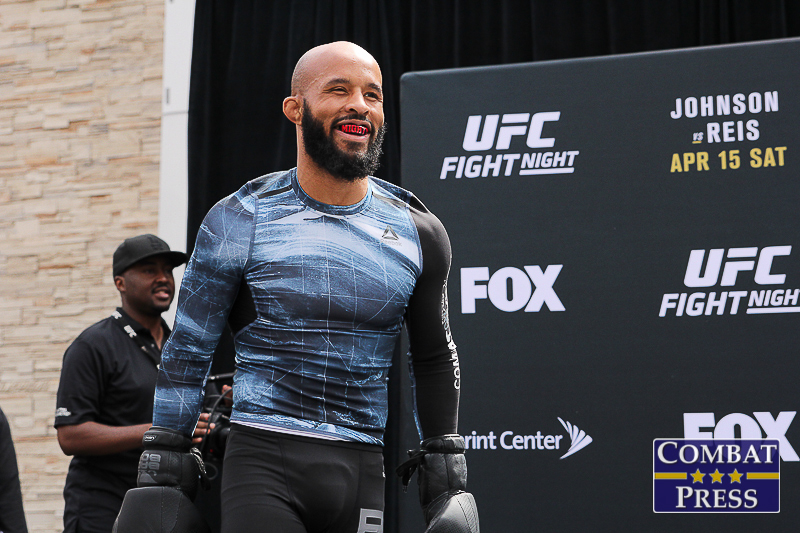The Rolling Stones put it best when they sang the line, ‘You can’t always get what you want.’ It’s a statement that resonates down to our very core. The path that we choose isn’t always the most direct or the one we wish to take, but it should lead us to our desired destination. Unfortunately, that path sometimes takes a sudden turn or sends us crashing off a cliff and into a ravine.
Take this same concept and apply it to the world of mixed martial arts, and more specifically to the sport’s champions.
Let’s take a moment to define the word “champion.” Merriam-Webster has four different definitions for the word, ranging from “a warrior or fighter; a militant advocate or defender” (notice the word “defender”), “one that does battle for another’s rights or honor,” and “a winner of first prize or first place in competition.” The ones that stand out, and obviously are the best in context, would be the first and the last definition. When a warrior felt he or his family was disrespected by an individual, the warrior would challenge the alleged perpetrator and scores would be settled. This approach seems to be quite effective and full of common sense, right?
Can the same idea translate to MMA? This is the burning question of the hour.
Recently it was announced that UFC 213 would lose the match-up between current The Ultimate Fighter coaches T.J. Dillashaw and Cody Garbrandt, thus leaving Dillashaw open and willing to fight. Almost immediately, Dillashaw commented about how he would drop to flyweight and stop champion Demetrious “Mighty Mouse” Johnson from breaking the title record by defeating him.
This would have been a great fight to make if Dillashaw was champion. However, he’s not, and therefore the fight doesn’t make sense. The backlash from the other fighters in the division didn’t go unnoticed, either. Even Mighty Mouse is not on board. The champ has his sights set on another, more deserving foe: Ray “The Tazmexican Devil” Borg.
Borg’s UFC success can’t go unrewarded any longer. In just three years with the promotion, the native New Mexican has notched five wins and suffered only two losses, both by way of decision. The 23-year-old is an exciting fighter with tons of energy and cardio that could present a fun challenge for Mighty Mouse.
Back to the point at hand: champions should be able to choose their opponents if and only if it makes sense.
UFC light heavyweight titleholder Daniel Cormier can choose to fight archrival and former champ Jon Jones, because the fight isn’t just Cormier’s preference. It’s what “DC” needs in order to move on from the doubt that surrounds his status as the better fighter. The fans want it. The UFC wants it. Both fighters probably want it, too.
UFC welterweight kingpin Tyron Woodley wants to fight Demian Maia. Whether Woodley’s enthusiasm is genuine or not, this is the fight that makes sense. It isn’t the “money fight” that everyone seems to be searching for these days, but Maia has earned the right to challenge for the title after reeling off seven straight wins and topping the likes of Neil Magny, Gunnar Nelson, Matt Brown, Carlos Condit and Jorge Masvidal.
On the flipside, there’s Michael Bisping’s desire to fight Georges St-Pierre on the other hand. This is an example of a champion who has his eyes set on the wrong opponent. GSP has never fought at middleweight under the UFC banner. The Canadian legend has been on the sidelines for what seems like an eternity, but in reality has been three and a half years. Bisping, meanwhile, has not come close to cleaning out his own division.
Criteria for a title challenger should be something like this: a.) a fighter who has strung together an impressive set of victories and is ready for the challenge; or b.) a successful fighter who has history with the champion and is also moving his or her way up the rankings, not just in standing, but in their showing inside the Octagon.
Worthy title challengers should not includes a fighter who is coming off a loss, nor a fighter who has been away from the sport for multiple years.
A champion wins the belt to defend it. If a champion is unable to defend his or her belt within a year, the landscape of the division needs to be addressed and the appropriate actions need to take place. This point is a slight tangent, but it circles us back around to where it all started.
Should a champion be able to choose his opponents? The answer is going to be split down the middle. Sometimes a champion chooses an unworthy opponent. Once in a blue moon, a champion makes the decision that is right for the fans, the fighters and themselves. In MMA, winning is the goal. It’s what drives these fighters day in and day out to sacrifice just about everything to obtain the illustrious gold. However, just because the fighter has gold around their waist, it doesn’t mean they can make just any fight. The fight still needs to make sense.

